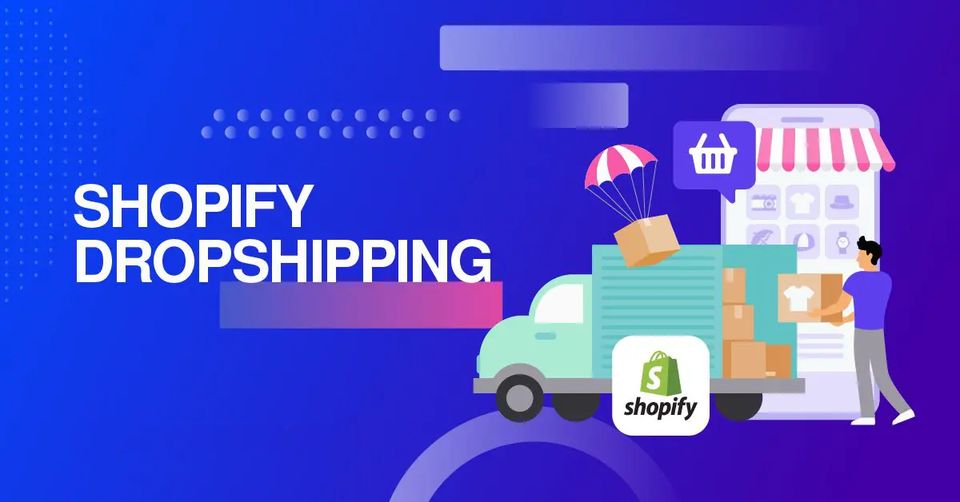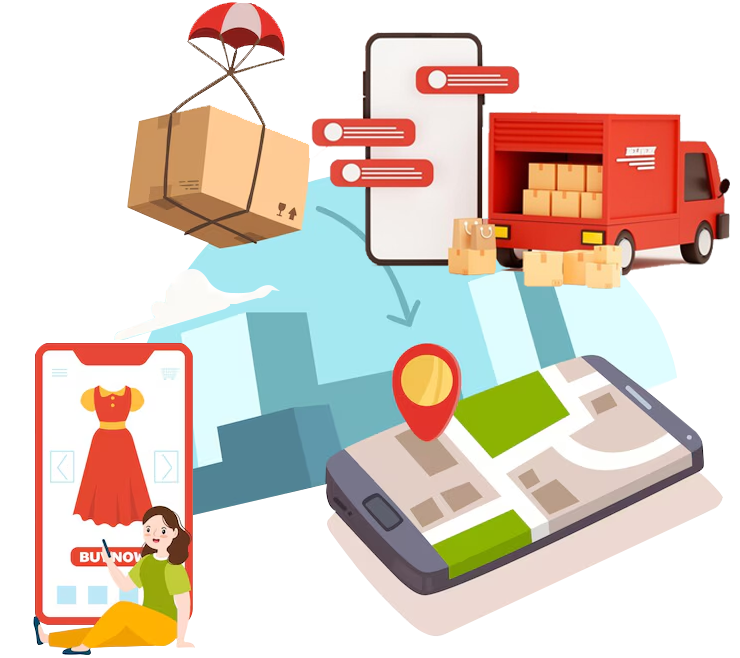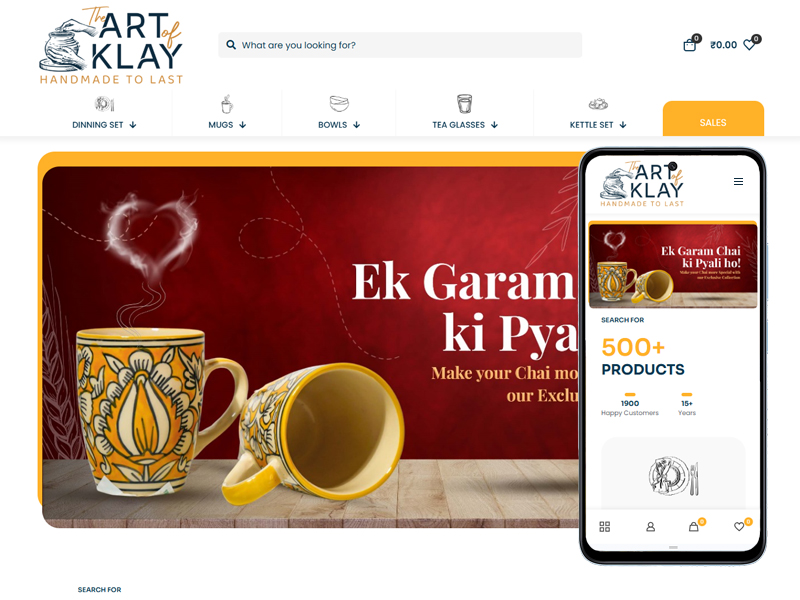Dropshipping South Africa ZA, South Africans Drop Shipping 2025

Introduction: Dropshipping South Africa ZA, South Africans Drop Shipping 2025
Dropshipping in South Africa has gained significant traction in recent years, especially with the surge in e-commerce platforms supporting digital businesses. Entrepreneurs looking to establish a profitable business in 2025 should consider dropshipping as a low-risk, high-reward opportunity. With a growing online consumer base, favorable business laws, and seamless payment integrations, South Africa is a lucrative market for dropshipping. In this article, we will explore the various aspects of dropshipping in South Africa, including its benefits, legalities, suppliers, payment methods, and strategies for success.
The Growth of E-Commerce and Dropshipping in South Africa
South Africa’s e-commerce industry is experiencing rapid growth due to increased internet penetration, mobile commerce, and digital transformation. Dropshipping, a business model that eliminates the need for inventory management, is becoming a preferred choice for entrepreneurs. The ease of setting up an online store on platforms like Shopify, WooCommerce, and local marketplaces such as Noon and Salla has contributed to the success of dropshipping in South Africa.
How Dropshipping Works in South Africa
Dropshipping is a business model where sellers list products from suppliers without holding inventory. When a customer places an order, the supplier ships the product directly to them. This model significantly reduces overhead costs, making it an attractive option for new businesses. In South Africa, dropshipping is simplified through local and international suppliers, efficient logistics partners, and seamless online payment gateways. Understanding the process, from choosing the right niche to managing orders, is crucial for success.
Legal Requirements and Business Licensing for Dropshipping
Before starting a dropshipping business in South Africa, it is essential to understand the legal landscape. Entrepreneurs need to register their business through platforms like MISA (Ministry of Investment South Africa) or the Ministry of Commerce. Obtaining an e-commerce license (E-Commerce Law 2019) ensures compliance with local regulations. Additionally, businesses must adhere to VAT registration and consumer protection laws. Staying updated with legal requirements prevents potential legal issues and ensures long-term success.
Contact us to develop your shopify store below;
Finding the Best Suppliers for Dropshipping in South Africa
Choosing reliable suppliers is critical for the success of a dropshipping business. Entrepreneurs can source products from international platforms like AliExpress, CJ Dropshipping, and Oberlo or collaborate with local suppliers to ensure faster delivery times. Working with reputable suppliers ensures product quality, reliability, and customer satisfaction. Evaluating supplier reviews, shipment policies, and product return options helps in selecting the right partners for a dropshipping business.
Popular Niches for Dropshipping in South Africa
Selecting a profitable niche is key to a successful dropshipping business. Popular niches in South Africa include fashion, beauty products, electronics, home decor, and health supplements. The demand for Islamic fashion, smart gadgets, and eco-friendly products is also rising. Conducting market research using tools like Google Trends, social media insights, and competitor analysis can help identify trending and profitable niches.
Contact us to develop your shopify store below;
Payment Gateways and Currency Considerations

Seamless payment integration is vital for a successful dropshipping store. South Africa has several reliable payment gateways, including PayTabs, HyperPay, and STC Pay. International platforms like PayPal and Stripe are also widely used. It is crucial to offer multiple payment options, including credit cards, Mada (South Africa debit card), and cash-on-delivery (COD), to enhance customer trust and conversion rates.
Shipping and Logistics Challenges in South Africa
Efficient logistics are crucial for dropshipping success in South Africa. Entrepreneurs should work with reliable shipping providers like Aramex, DHL, and SMSA Express. International dropshipping businesses should consider customs regulations and import taxes. Offering multiple shipping options, tracking services, and estimated delivery times can help build customer confidence and satisfaction.
Contact us to develop your shopify store below;
Marketing Strategies for Dropshipping Success
A strong marketing strategy is essential for driving traffic and sales in a dropshipping business. Leveraging social media platforms like Instagram, TikTok, and Snapchat for targeted advertising can yield high conversion rates. Additionally, running Google Ads, influencer collaborations, and email marketing campaigns can significantly boost brand visibility. SEO-optimized content and customer engagement through live chat and WhatsApp Business also enhance sales and customer trust.
Overcoming Challenges in Dropshipping South Africa
Like any business model, dropshipping comes with challenges such as product quality concerns, shipping delays, and competition. Addressing these challenges requires working with reliable suppliers, offering excellent customer support, and setting clear return policies. Entrepreneurs should continuously analyze market trends and adapt their business strategies to stay competitive in the evolving e-commerce landscape.
Future Trends and Opportunities in Dropshipping South Africa 2025
The future of dropshipping in South Africa looks promising, with advancements in AI-driven e-commerce, faster logistics, and a growing online shopping culture. Emerging technologies like chatbots, personalized shopping experiences, and AR/VR product visualization will revolutionize the dropshipping industry. Entrepreneurs who embrace these innovations and align with evolving consumer preferences will have a competitive edge in 2025 and beyond.
Conclusion: Dropshipping South Africa ZA, South Africans Drop Shipping 2025
Dropshipping in South Africa is a lucrative business opportunity in 2025, offering a low-investment model with high potential returns. By understanding the legal framework, selecting the right suppliers, leveraging effective marketing strategies, and addressing logistics challenges, entrepreneurs can build a successful dropshipping business. As e-commerce continues to thrive in South Africa, those who adapt to market trends and customer demands will achieve sustainable growth in the industry.
Contact Us to Hiring Dropshipping Development
Related other topic ask by our customers below
Dropshipping South Africa
Dropshipping in South Africa is gaining popularity as an eCommerce model that requires minimal investment. Entrepreneurs can sell products online without holding inventory, making it an attractive business opportunity. The Kingdom's growing digital economy, strong internet penetration, and increasing online shopping trends contribute to its potential. Many platforms like Shopify, WooCommerce, and Amazon support dropshipping businesses. However, understanding local regulations, taxation policies, and supplier reliability is crucial for success. Popular product categories include electronics, fashion, beauty, and home decor. Partnering with trusted suppliers and using effective marketing strategies like social media advertising can help maximize profits.
Contact us to develop your store below;
CJ Dropshipping South Africa
CJ Dropshipping is a well-known fulfillment service that simplifies dropshipping for South Africans entrepreneurs. It provides product sourcing, warehousing, packaging, and shipping services. With CJ Dropshipping, sellers can access a wide range of products at competitive prices and ensure faster delivery compared to suppliers like AliExpress. The platform also offers integration with Shopify, WooCommerce, and other eCommerce systems, making order management seamless. One of the key advantages is that CJ Dropshipping allows branding and custom packaging, helping businesses build a unique identity. To succeed, sellers must choose trending products, optimize listings, and market effectively to reach the South Africa audience.
Amazon Dropshipping South Africa
Amazon dropshipping in South Africa is a lucrative option, as Amazon provides a massive customer base. Entrepreneurs can list products on Amazon without stocking inventory, sourcing them from suppliers when orders are placed. While Amazon FBA (Fulfillment by Amazon) is popular, dropshipping allows sellers to operate with lower capital. However, strict policies require sellers to ensure quality, timely shipping, and customer satisfaction. Selecting reliable suppliers from regions like South Africa or local wholesalers is essential. Competitive pricing, SEO-optimized product listings, and strong customer service enhance success. Compliance with South Africa eCommerce regulations and VAT requirements is also necessary.
AliExpress Dropshipping South Africa
AliExpress is a popular dropshipping supplier for South Africa, offering a vast selection of products at competitive prices. Entrepreneurs can connect AliExpress to their Shopify or WooCommerce stores using automation tools like DSers. However, shipping times can be a challenge, as most products come from South Africa. To overcome this, sellers should choose ePacket or AliExpress Standard Shipping for faster delivery. Popular niches include fashion, beauty, electronics, and home decor. Customer satisfaction depends on clear communication, accurate product descriptions, and quality assurance. Building a trusted brand and using social media advertising can drive higher sales and profits.
Shopify Dropshipping in South Africa
Shopify is one of the best platforms for starting a dropshipping business in South Africa. It provides easy store setup, seamless payment gateway integration, and multiple supplier options. Entrepreneurs can connect with suppliers from CJ Dropshipping, AliExpress, or local wholesalers. Shopify offers powerful tools for managing inventory, processing payments, and optimizing marketing campaigns. To succeed, store owners must focus on selecting trending products, optimizing website design, and running targeted social media ads. Understanding local eCommerce laws, VAT regulations, and shipping logistics is essential. Partnering with reliable shipping providers ensures faster delivery and better customer satisfaction.
Best Dropshipping Suppliers in South Africa
Choosing the right dropshipping supplier is crucial for success in South Africa. Reliable suppliers ensure high-quality products, timely shipping, and competitive pricing. Some of the best suppliers include CJ Dropshipping, AliExpress, and Alibaba. Local suppliers like Sharaf DG, Tradeling, and Dubai-based wholesalers offer faster delivery. When selecting a supplier, consider factors such as product quality, shipping time, customer service, and return policies. Working with suppliers that provide branding options and private labeling helps build a strong brand identity. A good supplier partnership, combined with strong marketing strategies, ensures long-term dropshipping success in South Africa.
Dropshipping Business in South Africa
Starting a dropshipping business in South Africa is an excellent way to enter the eCommerce market with minimal risk. With increasing online shopping trends and high internet penetration, demand for dropshipping products is growing. The key to success lies in choosing profitable niches, reliable suppliers, and effective marketing strategies. Entrepreneurs should ensure compliance with South Africa regulations, including VAT registration. Setting up an online store through Shopify, WooCommerce, or Amazon can streamline operations. Payment gateways like PayTabs and HyperPay help process transactions securely. To thrive, sellers must focus on customer service, product quality, and digital marketing campaigns.
Contact us to develop your store below;
Best Dropshipping Websites in South Africa
Several platforms support dropshipping in South Africa, allowing entrepreneurs to build successful online businesses. Shopify is the most popular choice due to its ease of use and integration with suppliers. WooCommerce is another great option for WordPress users. Amazon and Noon.com also offer opportunities for dropshipping businesses. For suppliers, AliExpress, CJ Dropshipping, and Tradeling are top choices. Websites like AliBaba and Sharaf DG provide wholesale options for local sourcing. Choosing the right platform depends on business goals, target audience, and preferred supplier network. A well-optimized dropshipping website, combined with strong marketing, ensures long-term success.
South Africa Dropshipping Supplier
Finding reliable dropshipping suppliers in South Africa is essential for a successful eCommerce business. While many entrepreneurs use international suppliers like AliExpress, CJ Dropshipping, and Alibaba, local suppliers offer faster shipping and better customer service. Some top local suppliers include Tradeling, Sharaf DG, and Dubai-based wholesalers. These suppliers provide various products, including electronics, fashion, beauty, and home decor. When choosing a supplier, consider product quality, shipping speed, return policies, and customer support. Establishing strong relationships with trusted suppliers ensures consistent product availability and customer satisfaction, helping businesses grow in the South Africans market.
South Africa Dropshipping Platform
Several platforms support dropshipping businesses in South Africa, making it easy for entrepreneurs to start and manage online stores. Shopify is the most popular due to its user-friendly interface and integration with multiple suppliers. WooCommerce is another excellent choice for WordPress users, offering flexibility and customization options. Amazon and Noon.com also allow third-party sellers to operate dropshipping businesses. Local platforms like Salla and Zid cater specifically to South Africans-speaking markets and integrate with regional suppliers. The right platform depends on business needs, supplier preferences, and marketing strategies. Choosing a reliable platform ensures smooth operations and scalability.
Dropshipping 2025 South Africans
By 2025, dropshipping in South Africans-speaking countries is expected to grow significantly due to increasing internet penetration, digital payments, and eCommerce trends. Platforms like Shopify, WooCommerce, Amazon, and Noon.com will continue to dominate the market. More local suppliers and fulfillment centers will emerge, reducing shipping times and improving customer satisfaction. Entrepreneurs should focus on niche markets, automation tools, and AI-driven marketing strategies to stay competitive. Understanding local regulations, customer preferences, and logistics will be key to success. As technology advances, South Africans dropshipping businesses will become more efficient, profitable, and scalable in the coming years.
Is Dropshipping Allowed in South Africa?
Yes, dropshipping is allowed in South Africa, but businesses must comply with legal requirements. Entrepreneurs must register with the Ministry of Commerce, obtain a commercial registration (CR), and adhere to VAT regulations. Consumer protection laws require businesses to provide clear product descriptions, pricing transparency, and fair refund policies. Working with trusted suppliers and choosing efficient shipping methods ensures compliance. Platforms like Shopify, WooCommerce, Amazon, and Noon.com support dropshipping businesses in the region. Entrepreneurs must also ensure secure payment processing using gateways like PayTabs and HyperPay. Understanding and following regulations will help avoid legal issues.
Best Dropshipping in South Africa
The best dropshipping businesses in South Africa focus on quality products, reliable suppliers, and effective marketing. Popular categories include fashion, electronics, beauty, and home decor. Shopify and WooCommerce are the best platforms for store setup, while suppliers like CJ Dropshipping, AliExpress, and Tradeling offer a variety of products. Success depends on choosing the right niche, understanding South Africa consumer behavior, and using digital marketing strategies. Fast shipping, excellent customer service, and compliance with local regulations help businesses grow. Dropshipping in South Africa is a profitable venture with great potential for long-term success.
Contact us to develop your store below;
Best Dropshipping Stores in South Africa
Successful dropshipping stores in South Africa focus on trending products, reliable suppliers, and customer satisfaction. Some of the best niches include fashion, beauty, electronics, and home essentials. Shopify and WooCommerce are the top platforms for store creation, while suppliers like CJ Dropshipping, AliExpress, and Tradeling ensure product availability. Strong branding, SEO optimization, and social media marketing drive traffic and sales. Providing South Africans-language support and local payment options like PayTabs improves customer experience. By choosing the right products, marketing strategies, and fulfillment partners, dropshipping stores in South Africa can achieve long-term success.
Drop Shipping Companies in South Africa
Several companies provide dropshipping services in South Africa, allowing entrepreneurs to start eCommerce businesses without inventory. Local suppliers like Tradeling, Sharaf DG, and Zid offer products tailored to the South Africa market. International dropshipping platforms such as CJ Dropshipping, AliExpress, and Alibaba also ship to South Africa. Shopify and WooCommerce integrate easily with these suppliers, enabling seamless order fulfillment. Choosing a reliable company ensures fast delivery, quality products, and strong customer support. Entrepreneurs should evaluate product variety, shipping speed, and pricing to select the best dropshipping company for their business needs in South Africa.
Does Shopify Work in South Africa?
Yes, Shopify works in South Africa, making it a popular choice for dropshipping businesses. It supports South Africans language customization, integrates with local payment gateways like PayTabs and HyperPay, and works with suppliers that ship to South Africa. Entrepreneurs can use Shopify to create online stores, connect with global dropshipping suppliers like AliExpress and CJ Dropshipping, and automate order processing. While Shopify itself does not provide shipping, it integrates with third-party logistics providers. Entrepreneurs must register their business, comply with VAT regulations, and market effectively to succeed in the South Africans dropshipping market.
South Africa Dropshipping
Dropshipping in South Africa is a growing eCommerce opportunity, with increasing online shopping trends and digital payments. Platforms like Shopify, WooCommerce, and Amazon allow businesses to operate efficiently. Entrepreneurs can source products from international suppliers such as AliExpress, CJ Dropshipping, and Alibaba or use local suppliers like Tradeling and Zid for faster delivery. Choosing trending products, optimizing marketing strategies, and ensuring compliance with South Africa regulations are key to success. Dropshipping in South Africa offers a profitable business model with minimal investment, making it an attractive option for new and experienced entrepreneurs.
Dropshipping Companies in South Africa
Several companies in South Africa provide dropshipping services, making it easier for businesses to operate without holding inventory. Tradeling, Sharaf DG, and Zid are popular local options that offer a range of products. International companies like CJ Dropshipping, AliExpress, and Alibaba also cater to South Africa-based entrepreneurs. These companies provide integrations with platforms like Shopify and WooCommerce, allowing for automated order fulfillment. When choosing a dropshipping company, businesses should consider factors such as shipping times, product quality, return policies, and pricing. Selecting a reliable dropshipping company ensures smooth operations and customer satisfaction.
Dropshipping in South Africa Reddit
Reddit discussions about dropshipping in South Africa provide insights from entrepreneurs who share their experiences and strategies. Many users discuss the best suppliers, payment gateways, and marketing techniques. Common topics include whether Shopify works in South Africa, how to find reliable suppliers, and how to comply with South Africa regulations. Redditors often recommend using local platforms like Salla and Zid, along with international suppliers such as CJ Dropshipping and AliExpress. Discussions also cover challenges like high shipping costs and VAT regulations. Reading Reddit forums helps new entrepreneurs learn from others’ experiences and avoid common mistakes.
Dropshipping South Africa
Dropshipping in South Africa is a profitable business model with growing opportunities. Entrepreneurs can create online stores using Shopify, WooCommerce, or local platforms like Salla and Zid. Suppliers such as CJ Dropshipping, AliExpress, and Tradeling offer a wide variety of products that can be shipped directly to customers. The key to success is choosing trending products, optimizing marketing strategies, and ensuring fast shipping. Compliance with South Africa regulations, including VAT registration, is also essential. With increasing eCommerce demand, dropshipping offers a low-risk, high-reward opportunity for businesses in South Africa.
Dropshipping to South Africa
Dropshipping to South Africa is possible with global suppliers like AliExpress, CJ Dropshipping, and Alibaba, as well as regional suppliers such as Tradeling and Sharaf DG. Many international businesses ship directly to South Africa customers, but shipping times can vary. Using local fulfillment centers can speed up deliveries and improve customer satisfaction. Entrepreneurs must comply with South Africa customs regulations, VAT requirements, and payment gateway restrictions. Popular eCommerce platforms like Shopify and WooCommerce integrate easily with dropshipping suppliers. With the right strategies, dropshipping to South Africa can be a lucrative business opportunity.
Does Dropshipping Work in South Africa?
Yes, dropshipping works in South Africa, but success depends on choosing the right suppliers, marketing effectively, and complying with regulations. Many entrepreneurs use Shopify, WooCommerce, and Amazon to run their dropshipping stores. Suppliers like CJ Dropshipping, AliExpress, and Tradeling offer products that can be shipped directly to customers. Challenges include VAT registration, shipping delays, and competition. However, with the right product selection, strong branding, and good customer service, dropshipping in South Africa can be highly profitable. Entrepreneurs should research logistics, local payment gateways, and marketing strategies for long-term success.
Dropshipping Stores in South Africa
Successful dropshipping stores in South Africa sell high-demand products like fashion, electronics, beauty, and home essentials. These stores operate on platforms such as Shopify, WooCommerce, and Amazon, sourcing products from AliExpress, CJ Dropshipping, and local suppliers. Key success factors include fast shipping, strong branding, and excellent customer service. Many dropshipping stores use social media advertising and influencer marketing to attract customers. Local payment gateways like PayTabs and HyperPay help process transactions smoothly. With the right strategy, dropshipping stores in South Africa can generate significant revenue and build a loyal customer base.
South Africa Dropshipping Suppliers
Finding the best dropshipping suppliers in South Africa is essential for fast delivery and customer satisfaction. Local suppliers such as Tradeling, Sharaf DG, and Zid offer a variety of products with shorter shipping times. International suppliers like AliExpress, CJ Dropshipping, and Alibaba also serve the South Africa market but may have longer delivery periods. When choosing a supplier, businesses should consider product quality, shipping speed, return policies, and pricing. Reliable suppliers ensure smooth order fulfillment, reducing delays and improving customer experience. Working with trustworthy suppliers is crucial for long-term dropshipping success in South Africa.
Dropshipping in South Africa
Dropshipping in South Africa is a lucrative business model, allowing entrepreneurs to sell products without holding inventory. Platforms like Shopify, WooCommerce, Amazon, Salla, and Zid enable easy store setup. Suppliers such as CJ Dropshipping, AliExpress, Tradeling, and Sharaf DG provide product sourcing options. While dropshipping is legal, businesses must comply with VAT regulations, South Africa customs laws, and eCommerce policies. Payment gateways like PayTabs and HyperPay facilitate transactions. Choosing trending products, optimizing delivery times, and marketing through social media can help businesses succeed. South Africa’s growing eCommerce market makes dropshipping an attractive opportunity for entrepreneurs.
Amazon Dropshipping in South Africa
Amazon allows dropshipping, but sellers must follow Amazon’s dropshipping policy. This includes ensuring order fulfillment from authorized suppliers and not using third-party invoices. Entrepreneurs can list products on Amazon and source them from suppliers like CJ Dropshipping, AliExpress, and Tradeling. Alternatively, Amazon FBA (Fulfillment by Amazon) can handle storage and shipping. Sellers must register for a South Africa trade license and comply with VAT regulations. Amazon’s large customer base in South Africa provides a great opportunity for dropshipping businesses. However, sellers must ensure high-quality products, competitive pricing, and reliable shipping to succeed.
Dropshipping Platforms in South Africa
Several dropshipping platforms operate in South Africa, helping entrepreneurs run their eCommerce stores. Shopify, WooCommerce, and Amazon are the most popular international platforms. Local platforms like Salla and Zid offer South Africans-language interfaces and integration with regional payment gateways. Dropshipping suppliers such as CJ Dropshipping, AliExpress, and Tradeling support businesses with product sourcing. These platforms allow automated order processing and customer management. When selecting a platform, entrepreneurs should consider ease of use, integration options, customer support, and costs. Choosing the right platform ensures seamless dropshipping operations in South Africa.
Shopify Stores in South Africa
Shopify is one of the best eCommerce platforms for setting up an online store in South Africa. It supports South Africans language customization, integrates with local payment gateways like PayTabs and HyperPay, and connects with dropshipping suppliers like AliExpress, CJ Dropshipping, and Tradeling. Successful Shopify stores in South Africa sell fashion, electronics, beauty products, and home essentials. Entrepreneurs need to register their business, comply with VAT laws, and market through social media. With the right strategy, Shopify stores in South Africa can generate significant revenue and build long-term customer loyalty.
Dropshipping Suppliers in South Africa
Finding reliable dropshipping suppliers in South Africa is key to business success. Local suppliers like Tradeling, Sharaf DG, and Zid offer faster shipping times. International suppliers such as CJ Dropshipping, AliExpress, and Alibaba provide a vast selection of products. Key factors in choosing a supplier include product quality, delivery speed, pricing, and customer support. Many suppliers integrate with Shopify, WooCommerce, and Amazon, making order fulfillment easier. Working with trusted suppliers ensures smooth logistics, better profit margins, and improved customer satisfaction in the South Africa dropshipping market.
South Africa Dropshipping Website
Creating a dropshipping website in South Africa involves choosing the right platform, selecting profitable products, and integrating with reliable suppliers. Entrepreneurs can use Shopify, WooCommerce, Salla, or Zid to set up their store. Partnering with suppliers like AliExpress, CJ Dropshipping, and Tradeling allows seamless product sourcing. Payment gateways such as PayTabs, HyperPay, and Tamara (buy now, pay later) ensure smooth transactions. Marketing through social media, SEO, and paid ads attracts customers. A well-optimized dropshipping website with fast shipping, quality products, and good customer service can thrive in the South Africa market.
Dropshipping Websites in South Africa
Several successful dropshipping websites operate in South Africa, offering products in fashion, electronics, beauty, and home essentials. These websites use Shopify, WooCommerce, Salla, or Zid and source products from CJ Dropshipping, AliExpress, and Tradeling. Key features of a successful dropshipping website include mobile-friendly design, secure payment gateways, and fast shipping. Many websites use social media advertising, influencer marketing, and Google Ads to attract traffic. Entrepreneurs looking to enter the South Africa market should focus on offering high-demand products, excellent customer service, and efficient order fulfillment for long-term success.






















